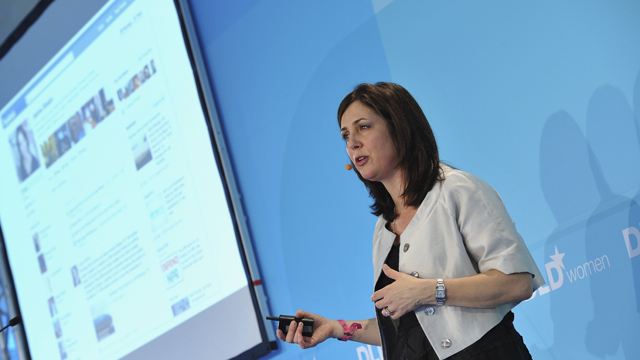
(Getty)
What happens to your Facebook page after you die? Facebook has recently made some changes to their policies that might change that answer. Here’s what you need to know.
1. Facebook Will Make Look Back Videos For Dead Users
After 100 years from now, Facebook will have 916 million accounts of dead people!
— Facts In Your Face (@FactsInYourFace) February 21, 2014
Mashable is reporting that Facebook will now offer “Look Back” videos for the deceased.
Originally offered as part of Facebook’s 10th anniversary celebration, these “Look Back” videos can now be requested by users who want to see the video of a friend or family member who passed away. Video requests can be made here.
2. Dead User Profiles on Facebook Can Go Public
Facebook is now leaving dead users' profiles public. Why? http://t.co/2LKREM8J7T
— BuzzFeed FWD (@fwd) February 21, 2014
Mashable‘s report adds that Facebook profiles will be more widely visible after a person’s death.
“…all fuctions operate as they did when the user was active on the platform. For example, if a user kept his profile public to anyone on Facebook, that is the way his profile will be even after his passing.
Previously, when Facebook memorialized a profile, it was only visible to friends of the deceased.”
3. These Changes Were Months in the Making
"the deceased person’s expectations of privacy" is a phrase I do not like http://t.co/iZaJmNzLKb
— John Herrman (@jwherrman) February 21, 2014
In a Facebook Newsroom post, members of the Facebook team explained that the changes were the result of months of conversation about how Facebook users deal with death. The post states:
“Over the past several months, we’ve been thinking about and working on better ways for people to remember loved ones. As we continue to think through each aspect of memorialization, we ask ourselves questions that have no easy answers: How might people feel? Are we honoring the wishes and legacy of the person who passed away? Are we serving people who are grieving the loss of a loved one as best we can?”
4. Digital Deaths Are Being Discussed at Other Tech Companies
Just discovered that Google lets you control what happens to your account after you die. Even lets you send emails https://t.co/MIMEj2WGCM
— Jesse Hattabaugh (@arkanciscan) February 10, 2014
The Wall Street Journal notes that Facebook isn’t the only big tech company that is changing its user policies in the face of death questions. WSJ notes:
“Last year, Google began allowing users to identify what they’d like to happen to their data after they pass away, including selecting an heir to their data, which Google calls an ‘Inactive Account Manager.'”
As youthful tech companies begin to age along with their users, it is likely that more and more companies will be debuting new after-death policies.
5. Facebook’s Death Policies Are Controversial
Another policy change! #Facebook Will Make 'Look Back' Videos for Deceased Users http://t.co/DRvwLkOHc4 Creepy. Creepy. Creepy.
— ell Enn (@Ell_Enn) February 21, 2014
Not everyone is a fan of Facebook’s approach to death-related issues. BetaBeat ran an article in response to the news entitled “Facebook Is Making it Easier For People to Stalk You After You Die.”
Tech writer Gillis Bernard responded to the news, writing:
“In my opinion, this is pretty creepy. When I go away, I don’t really want to be remembered by a digital gravestone. I don’t want Facebook to continue to harvest whatever personal data can still be pulled off my profile. But if it helps all my family and friends cope with my death, then sure…But who is this new mode actually benefiting: mourners or Facebook? Might the Social Network continue to mine for data post-mortem?”
